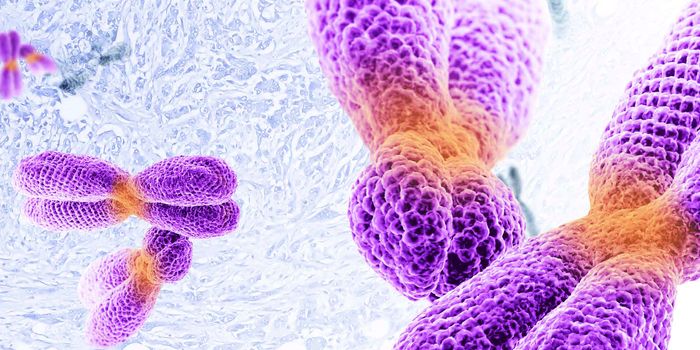Pre-clinical Study Describes a Strategy to Improve Adoptive Cell Therapy
Immune cells, known as T cells (also called T lymphocytes), play a vital role in the anti-tumor immune response. T cells find, attack, and, when effective, kill cancer cells. Adoptive cell transfer (ACT), also called adoptive cell therapy, describes a form of cancer immunotherapy carried out by administering T cells to patients, providing them with an arsenal of killer cells.
T cells use a protein present on their surface called a T cell receptor (TCR) to identify cancer cells. Cancer cells express a protein on their surface called an antigen , and when a TCR binds an antigen, the T cell becomes activated to kill the cancer cell. An integral part of this system is regulated because each TCR recognizes a specific antigen. Immunity is most robust if a patient has a high number of T cells possessing TCRs programmed to find the antigen on their cancer.
In some situations, doctors can evaluate the specific antigen present on a patient’s cancer cells. In such a case, it may be possible to capitalize on the TCR’s role in activating the anti-tumor immune response by administering the patient T cells engineered to express antigen-specific TCRs. This method of ACT utilizing specially engineered TCRs has some efficacy as a cancer therapy, particularly in some types of melanoma. Unfortunately, immunosuppressive factors in the tumor microenvironment (TME) can limit the effectiveness of engineered T cells.
A recent study in Science Immunology provides new evidence on overcoming an immunosuppressive TME that allows ACT to work more effectively. This work focuses on a highly specialized subset of NKT cells, immune cells which perform functions of both T cells and natural killer (NK) cells. The cells utilized in this study, called invariant NK T (iNKT) cells, limit the functions of suppressive cells in the TME.
The researchers engineered iNKT cells to express a specialized TCR. When transferred into mice, the TCR-engineered iNKT cells proved more effective in controlling tumors than unmodified iNKT cells or T cells engineered with the same TCR. The study found that the TCR-engineered iNKT cells both killed cancer cells and reduced the activities of the immunosuppressive cells in the TME. The authors then utilized a multistage vector platform which ensured delivery of the transferred cells to the tumor. This drug delivery enhancement, combined with an iNKT agonist, improved both anti-tumor functions.
The authors conclude that harnessing the dual functions of iNKT cells to attack cancer cells and simultaneously hinder immunosuppressive cells could become a novel ACT strategy.
Sources: Nature, Science Immunology









